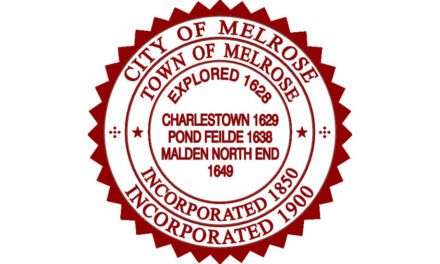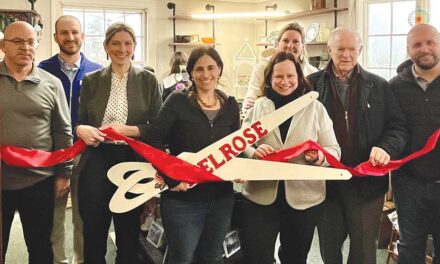MELROSE — The aldermen’s Appropriations Committee Monday made a change to a plan to bring more restaurants to the city, a move that will limit the number of licenses to sell any kind of liquor.
Discovering that state rules would allow Melrose to have as many as 28 all-liquor licenses, the Appropriations Committee decided to add a section to a request for special legislation that would cut that number in half. Another added section limits the number of malt beverage and wine licenses to six, the same number the state would permit the city to have.
These changes are to a draft of a Special Act to the Legislature which would authorize Melrose, through its Liquor License Commission, to issue licenses to table-service restaurants and function rooms with minimum seating capacities.
In order to see all alcoholic beverages, according the proposals, a restaurant must have a capacity of not less than 50. To sell malt beverages and wine, an eatery must have a capacity of not less than 25.
A couple of weeks ago, Mayor Robert J. Dolan, in a memo to the aldermen, wrote, “I believe it is incumbent upon elected officials to offer our business community the flexibility and creativity needed to be successful. Through the foresight of the Planning Department and the Board of Aldermen, unanimous approval was given to rezone our rail corridors from one end of the city to the other to allow for responsible housing and business growth. The overhaul of Franklin Street and upcoming reconstruction of Essex Street, funding by the Commonwealth’s MassWorks grant program, will lay the groundwork for updated smaller business nodes outside of Main Street.
“A part of the transition of these business districts is to evolve in a pragmatic manner. In my opinion, that includes supporting smaller table service restaurants to thrive in our city by allowing the sale of alcohol. Given the lack of large commercial real estate available in the city for restaurants, I believe we should embrace this opportunity to enhance the community for our residents. After many months of listening, revising and reviewing, the Liquor License Commission passed a set of regulations that will allow for the progress needed to remain competitive without changing the character of Melrose.
“The adopted regulations promote a more uniform enforcement of the rules for restaurants. For example, they codity the regulation of allowing one alcoholic drink before requiring ordering a meal item off a menu. They also add safeguards ensuring an establishment is truly a sit-down restaurant by requiring table settings, silverware and waiter or waitress staff.
“I have been impressed with the deliberate process the Liquor License Commission and The Liquor Licensing Advisory Committee have taken to ensure any changes and recommendations are well-crafted and reflect the voice of the residents and businesses of the community…..” Dolan concluded.




